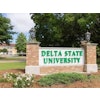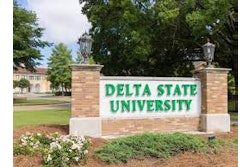As a doctoral student three decades ago, I was introduced to Dr. Carter G. Woodson and a quote by Horace Mann. I believe that education is a great equalizer, which played a major role in my becoming an educator. Woodson was required reading then and should be now. Any discussion of the term ‘miseducation’ is woefully incomplete without referencing Dr. Woodson’s Miseducation of the Negro. It is both sad and pathetic that this term and book are more timely and timeless than ever before in 2020. Both the racial pandemic (centuries old) and COVID-19 pandemic (recent) have further exposed benign neglect in the education of Black students at all levels of education – P-12 and higher education. When the ‘cure’ for COVID-19 is found (I pray soon), the racial pandemic will still exist (sigh and tears).
Malpractice is primarily associated with the medical profession. The term, however, can relate to any profession. Malpractice refers to dereliction of duty, wrongdoing, negligent professional activity or treatment. Thus, professional malpractice in education is a reality and it must be interrogated. Our field is not exempt from accountability; what we do can truly save lives.
 Dr. Donna Y. Ford
Dr. Donna Y. FordThe academic and professional dreams and lives of targeted Black students and classmates are diminished with both the written and hidden curricula. Dreams Deferred by Langston Hughes must also be required reading. Lower grades, grade retention, racial tracking, special education misplacement, denied access to gifted and talented education, and negative school records that look like a criminal’s rap sheet follow our Black children like what is it – profiling and policing – are just a few potent examples of the grave disservices anti-Black educators do to Black students; what such adults do to Black children (P-12) and young adults and future professionals (higher education). Families send their children to school to learn, to be helped, not to be miseducated. Benign neglect is ineffective and has no place in social justice work and endeavors.
Students’ responses to miseducation and racism are predictable. They are watching educators and have a pretty accurate sense of discernment. This adage is befitting — ‘students don’t care what you know, until they know that you care’. Depending on personality, coping skills, and resources, many or most students will respond to negative educators with negative behaviors. The correlation is clear. Equity-minded, antiracist, culturally responsive educators are empathic not punitive. They are self-reflective and do not engage in blaming-the-victim attitudes and actions. Victimizing students is unconscionable; devoid of empathy and compassion.
Professional Betrayal
Culturally assaultive and incompetent educators (e.g., professors, administrators, teachers, counselors, psychologists), often cloaked under the lie of colorblindness, which I call ‘cultureblindness’, not only betray students, but also our education profession. What comes to mind are these outcomes:
- Diminishes the purposes of education – to help not hurt; to move student forward; to have a positive impact on students under our charge; those who never dreamed of being educators or reject their choice should leave the profession;
- Trivializes professional impact – I am privy to far too many examples of how educators trivialize or forget the meaning of ‘educate’ and the authentic purposes when it comes to Black students. This is definitely/undeniably embedded in the hidden and culturally assaultive curriculum; trauma!
- Reinforces negative views of education – such educators contribute to why the field faces ongoing criticisms (e.g., feeds into the rationale for why teacher salaries are low and/or lower than other professions where lives are at stake, such as medical professionals); and
- Disrespects colleagues – such educators seriously diminish, undercuts, and distracts from the work and effects of committed, equity-minded, antiracist educators.
Antiracist educators, alongside Black educators, deserve better colleagues. There is no place for what I call ‘drive by’ educators who come to school, do unintended or collateral damage (e.g., implicit bias), intentional damage (e.g., explicit bias), and drive or speed away when the school bell rings — with no commitment and allegiance to the Black community. I am grounded in and guided by the notion of legal ‘disparate impact’. Whether educators unintentionally or intentionally miseducate Black students, the outcome is the same – discrimination and harm.
Equitable, AntiRacist Educators Take Charge of their Preparation
These educators are not bystanders – passive — in their professional development as a college student and practicing professional. They read literature focused on antiracist education, particularly by Black scholars, and ask their professors and administrators for such training. These educators are willing to deal with discomfort that comes with change and self-reflection. At the very least, they seek out and attend:
- Required diversity courses as students;
- Non-required diversity courses as students;
- Required diversity professional development as educators;
- Non-required diversity professional development as educators, such as Black Minds Matter (link);
- Conferences focused on antiracist education.
Dr. Donna Y. Ford is a Distinguished Professor of Education and Human Ecology and Kirwan Institute Faculty Affiliate at The Ohio State University’s College of Education and Human Ecology. You can follow her on Twitter @DrDYFord
















